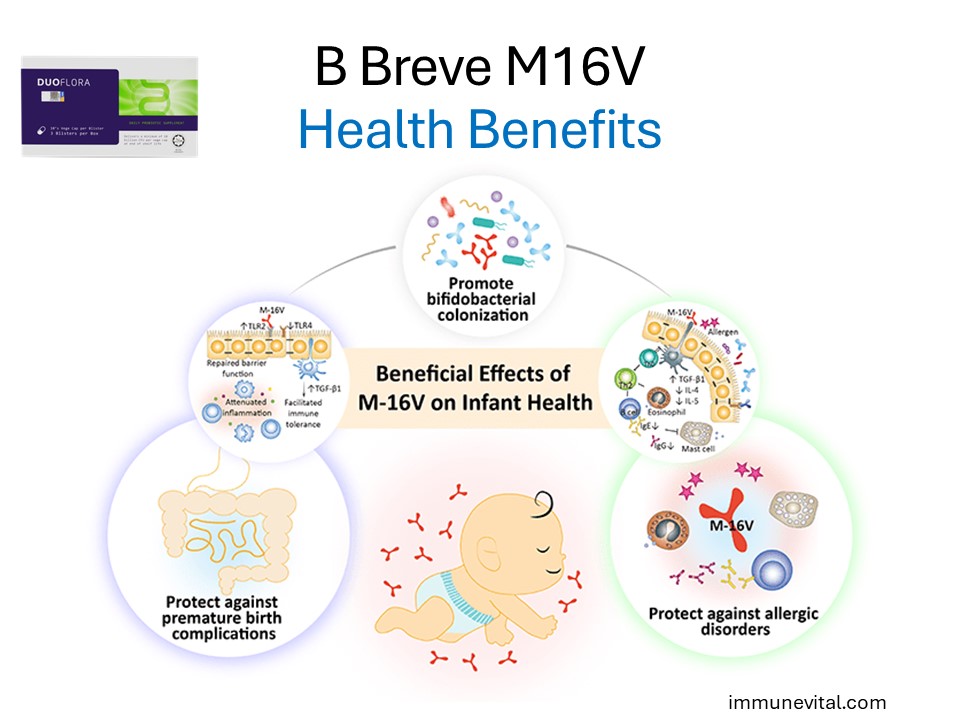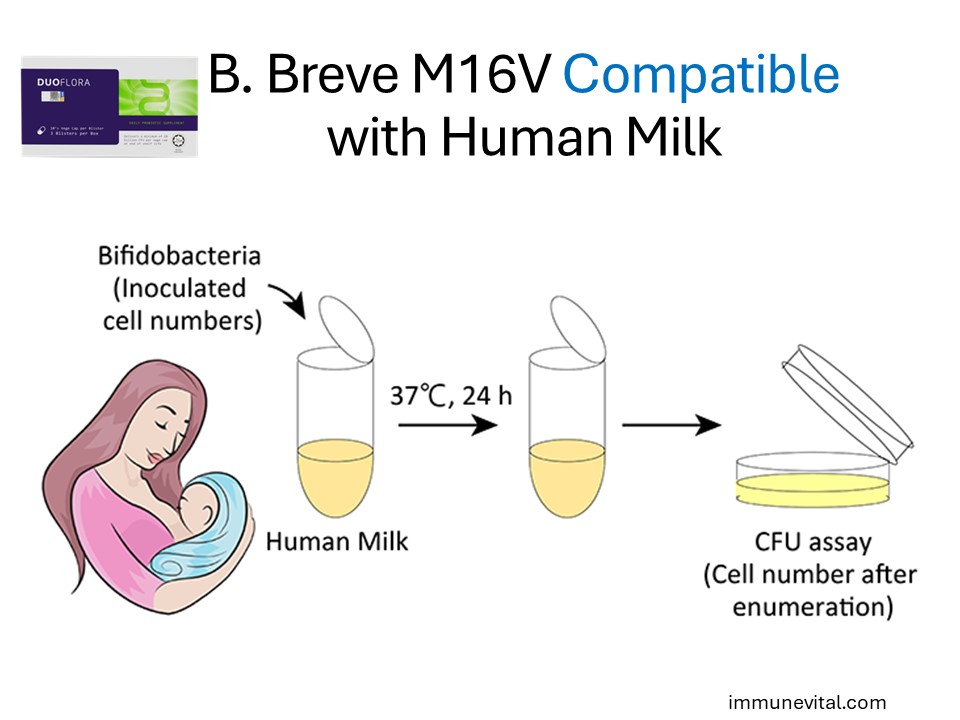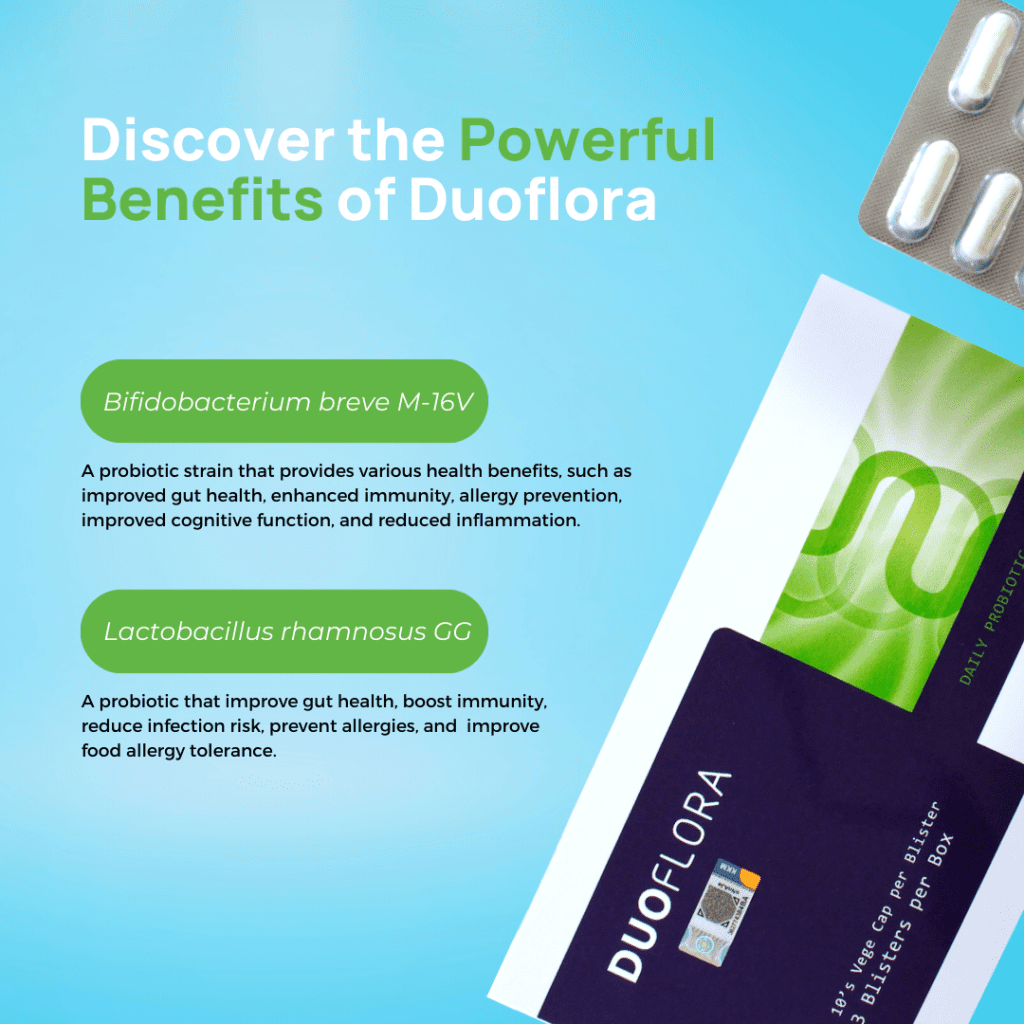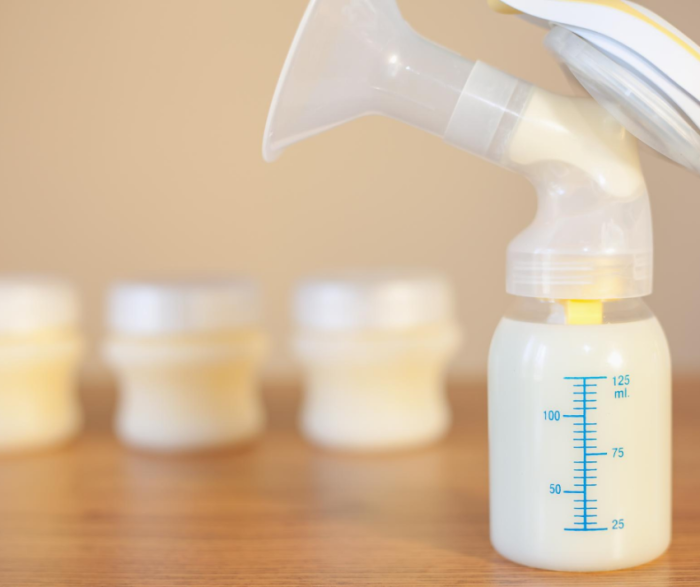Is your Probiotic COMPATIBLE with Breast Milk?
- What if your breast milk is actually killing the probiotic you are giving?
- Did you know that probiotics have to be alive for it to give health benefits?
- Do you know that not all probiotics are equal? The benefits are based on the specific strain!
If you have questions and are wondering what you should do, read on below…
Have you ever wondered why breast milk can be left out longer than normal formula milk?

CDC guidelines for breast milk state that freshly expressed or pumped milk can be stored:
- At room temperature (77°F or colder) for up to 4 hours.
- In the refrigerator for up to 4 days.
Whereas CDC guidelines for prepared infant formula states that formula can spoil if it is left out at room temperature.
- Use prepared infant formula within 2 hours of preparation and within one hour from when feeding begins.
- If you do not start to use the prepared infant formula within 2 hours, immediately store the bottle in the fridge and use it within 24 hours.
The reason why breast milk can stay out so long is because breast milk has many antibacterial properties. It has antibodies along with enzymes and leukocytes that inhibit bacteria.
Why it is important to choose a probiotic that is compatible with breast milk

Human milk is the gold standard in infant nutrition. It plays an enormous role in infant health development. Its secret is its ingenious and unique composition. Human milk is comprised of vital nutrients and distinct bioactive molecules that the infant needs for growth and development. Take note of the antimicrobial components that make a significant portion of breast milk to protect the infant.

In a study by Minami, human breast milk is selective of probiotic strains that are beneficial for infant health. One of the key strains is Bifidobacterium Breve M16V. In this study, non-human derived probiotic strains failed to grow and even died out.
Choose a HUMAN strain Probiotic for better Health Benefits

Supplementation with Bifidobacterium Breve M16V is specifically beneficial at reducing the risk of allergic disorders in infants as well as protecting the vulnerable preterm infants against premature birth complications such as necrotizing enterocolitis (NEC) and sepsis. M-16V has been demonstrated to promote early gut microbial colonization to support healthy growth and to shape a healthy gastrointestinal and immune system.
Duoflora is the PROVEN Probiotic Choice

- Duoflora is not your average probiotic; it is a scientific solution designed to enhance your vitality from within. Our probiotic strains, sourced from human origins, are meticulously selected to ensure optimal effectiveness and seamless integration with your body’s natural systems.
- Duoflora probiotic is triple sealed to protect the precious cargo inside. The first seal is the laminated box, the second seal is the aluminum pouch and the last seal is the blister pack.
- Duoflora endured two years of rigorous stability studies, guaranteeing viability even in tropical climates, ensuring it delivers on its promises of minimum 5 billion CFUs per strain until the very last capsule at the end of shelf life.
Because HUMAN strain probiotics are beneficial for HUMANS

Duoflora contains:
- Bifidobacterium breve M-16V derived from healthy infants with published medical evidence for decreased airway inflammation in asthma and improving eczema. It is also used in premature infants to prevent NEC (necrotising enterocolitis)
- Lactobacillus rhamnosus GG derived from health adults with published medical evidence for helping atopic dermatitis/eczema, food allergy and prevention of acute gastrointestinal infection.
How to administer Duoflora?
- You can consume Duoflora directly via swallowing the capsule.
- You can open the capsule to swallow the contents directly. It has a pleasant mild taste acceptable to infants, children, and adults.
- You can empty the capsule content into expressed/pumped breast milk.
- You can empty the capsule content into the formula.
What if I am directly breast feeding my baby?
You can consume Duoflora directly so that it can pass to your baby.

The above figure published in British Journal of Nutrition shows that probiotics in breast milk can come from the mother’s gut. Mothers breast feeding can consume Duoflora directly and the probiotic can be passed on to your baby through your breast milk. Remember that human derived probiotic strains are compatible with human breast milk and are better for human health.
Join the many HAPPY users of Duoflora


Science for your Health
Choosing a probiotic that is compatible with breast milk is essential for maximizing health benefits for both mother and baby. Duoflora’s human-derived probiotic strains, Bifidobacterium Breve M-16V and Lactobacillus Rhamnosus GG, ensure optimal effectiveness and safety. These strains not only support infant gut health but also aid in reducing the risk of allergic disorders and improving overall immune function.
Discover the proven benefits of Duoflora and make a proactive choice for healthier, happier lives.
CLICK HERE TO ORDER – Duoflora The Probiotic compatible for Humans
References
Witkowska-Zimny M, Kaminska-El-Hassan E. Cells of human breast milk. Cell Mol Biol Lett. 2017;22:11. doi:10.1186/s11658-017-0042-4
Wong, C.B., Iwabuchi, N. and Xiao, J.Z., 2019. Exploring the Science behind Bifidobacterium breve M-16V in Infant Health. Nutrients, 11(8), p.1724.
Patole, S.K., Rao, S.C., Keil, A.D., Nathan, E.A., Doherty, D.A. and Simmer, K.N., 2016. Benefits of Bifidobacterium breve M-16V supplementation in preterm neonates-a retrospective cohort study. PloS one, 11(3), p.e0150775.
Minami, J., Odamaki, T., Hashikura, N., Abe, F. and Xiao, J., 2016. Lysozyme in breast milk is a selection factor for bifidobacterial colonisation in the infant intestine. Beneficial Microbes 7: 53-60.
Bergmann H, Rodríguez JM, Salminen S, Szajewska H. Probiotics in human milk and probiotic supplementation in infant nutrition: a workshop report. British Journal of Nutrition. 2014;112(7):1119-1128. doi:10.1017/S0007114514001949


